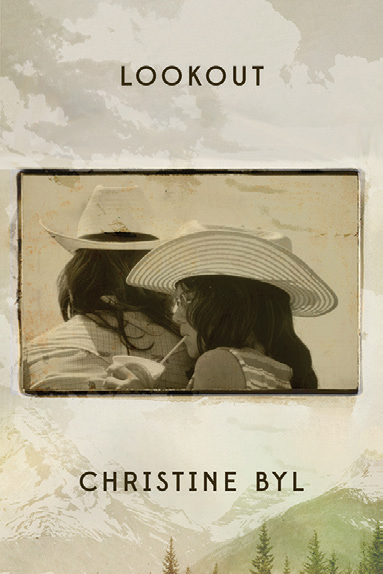
03 Aug Books: Reading the West
Christine Byl’s Lookout (Deep Vellum, $25.95) offers a stunning portrait of a family firmly rooted to the land in northwest Montana. Told through numerous points of view, in authentic voices, and with a poetic ear for language, this is the kind of novel one becomes a part of. We, as readers, enter this fully fleshed-out world — these true-to-life characters become our close friends and loved ones — their small triumphs and big sorrows move our blood like tides heaving with the moon’s pull.
From their farm home on the outskirts of Glacier National Park, the Kinzler family has crafted a life of delicate balance with the surrounding wildlands, with their volatile neighbors, and with each other. The parents, Josiah and Margaret, stay together by living apart — she in the family house and he in a small cabin at the other end of the property, where he can be close to his beloved woodshop. Here, he creates bespoke pieces of furniture for locals and tourists that are as beautiful and loved as the trees he carefully fells to make them. This arrangement keeps him close to another love, too — one that goes unspoken. But, as the Kinzler daughters grow and come to understand, their father’s friend, Freddy, is a welcome one. Margaret, too, understands. When confronted with her husband’s supposed homosexuality, she responds, “I don’t know what he was, what he’d say. He loved a man, I do know that. … How could you not love Freddy?”
Love, in all its forms, with its vulnerability and confusion, is at the heart of the Kinzler story, for the parents as well as their children.
The sisters, Cody and Louisa, navigate their very different childhoods: Cody, the sullen tomboy who helps her dad in the forest and is happiest riding her horse, Daisy, and Louise, lost in a flurry of boyfriends, beer parties, and teenage rebellion. In adulthood, they build lives from their respective bouts of loss and chaos, Louise by living far from home, and Cody by coming closer than ever to it.
In the end, this novel is a moving, cinematic, and thoughtful pondering of the vicissitudes of family, love, hardship, and redemption, set in a lushly-drawn country of mountain peaks, endless forests, and small-town solitude. The members of the Kinzler family represent the honest reality of life in the new West, so often obscured by the myth of the old.
OF NOTE
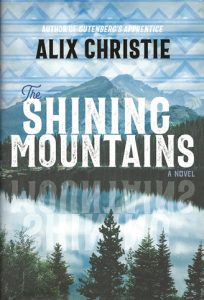
In a historical novel as wild and sprawling as the land it inhabits, Alix Christie’s The Shining Mountains: A Novel (High Road Books, $29.95) encompasses the myriad cultures that sometimes clash and sometimes unite in the farthest reaches of influence within the Hudson’s Bay Company, set within the rivers and mountains of what was to become Oregon, Washington, Idaho, and Montana. Based on her Scottish, Métis, and Nimiipuu (Nez Perce) ancestors, Christie’s story reflects major political, economic, and societal events of the 1800s through the eyes of strong-willed and empathy-arousing individuals, both real and imagined.
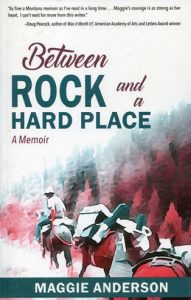
In her debut memoir, Between Rock and a Hard Place: A Memoir (Riverfeet Press, $18), Maggie Anderson stares unflinchingly into the unknown pains and fears of losing a loved one to a slow-moving, debilitating disease. When her larger-than-life, high-adventure, and high-adrenaline husband, Rockey, is diagnosed with Parkinson’s, their life of wilderness trekking and backcountry sports gives way to one of hospitals, treatments, and medical bureaucracy. Their love for each other, though put to the test, guides them to the very end. Beyond the tears this book may foster in readers, its joy of life and power of love will remain.
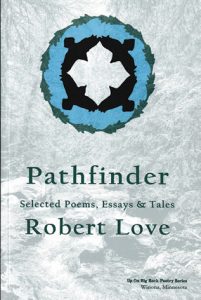
In his new collection, Pathfinder: Selected Poems, Essays, and Tales (Shipwreck Books, $18.95), Robert Love reminds us that the poet’s job is to listen and see. He immerses himself so deeply in the wildlands of the northern Montana he loves and works in that the poems he returns with feel as natural as the landscapes he describes. In the second half of the book, Love turns his craft to essays and stories, and digs deeper into the themes of our interconnectedness with the earth and its creatures, the timeless spirituality found in wild places, and the need to protect the natural world that so vividly inhabits his poetry. What results is a conversation between the poet and the essayist — one of the oldest conversations in which humanity has engaged: How do we fully realize our place in, and responsibility for, this earth that sustains us?
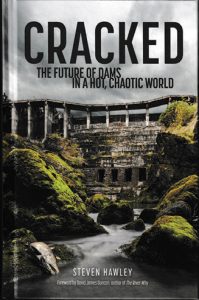
In compelling detail and persuasive argument, Steven Hawley, in Cracked: The Future of Dams in a Hot, Chaotic World (Patagonia, $28), makes a case for the immeasurable environmental, economic, and social damage wrought by the damming of American waterways. Sold to an unwary public as a panacea, industrial dams have, according to Hawley’s eloquent reporting, proved themselves in many cases to be exactly the opposite — stunningly destructive, wasteful, and, in the end, beneficial to only a very few wealthy people and corporations. Hawley’s message is driven home with page after page of vibrant and chilling photography that makes this book as beautiful as it is impelling.
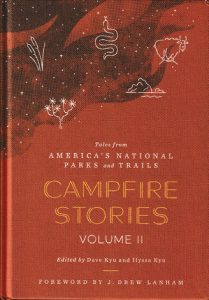
With volume II of Campfire Stories: Tales from America’s National Parks and Trails (Mountaineers Books, $24.95), editors Dave and Ilyssa Kyu gather an impressive collection of stories, essays, and poems that celebrate and illustrate the wonders of some of America’s best-loved places: the Grand Canyon, Everglades, Olympic, Glacier, and Joshua Tree national parks, and the Appalachian and Pacific Crest national scenic trails. With a foreword by poet and ornithologist J. Drew Lanham and entries by such acclaimed writers as Terry Tempest Williams, George Bird Grinnell, Rena Priest, and Cheryl Strayed, this volume brings together nature writing at its finest. Perhaps most importantly, it raises the two issues that our national parks can no longer ignore: a past fraught with the brutal and often illegal displacement of the Indigenous inhabitants of these lands and a violently warming climate that threatens their future. These stories will indeed make for fascinating campfire entertainment, but they will also leave their readers lying in their tent, contemplating big issues and the part they play in their unfolding.
Marc Beaudin is a poet, theater artist, and bookseller based in Livingston, Montana. He has contributed to numerous publications, written two books — Life List: Poems and Vagabond Song: Neo-Haibun from the Peregrine Journals — and his work has been included in anthologies dedicated to environmental and social justice.



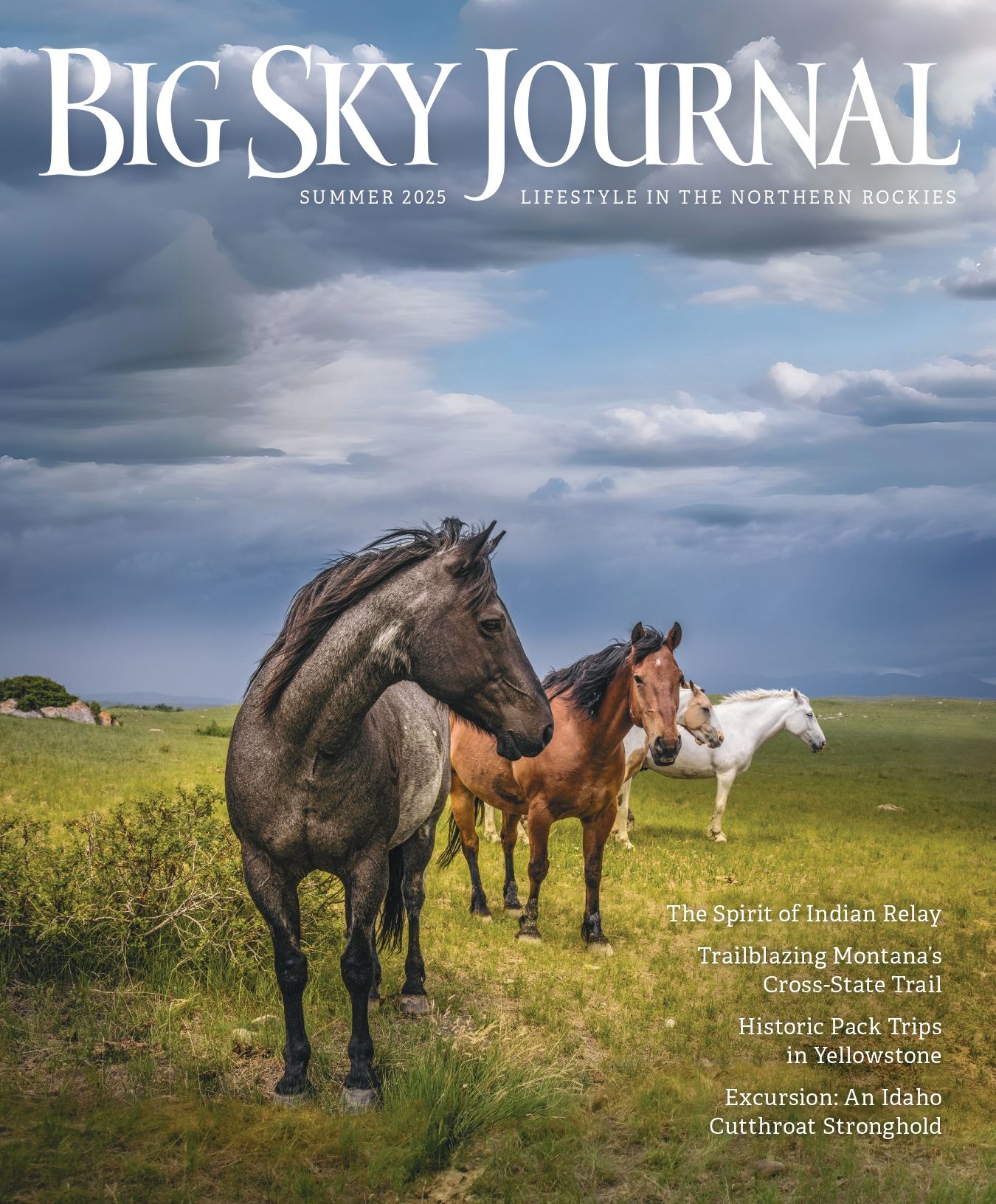
No Comments